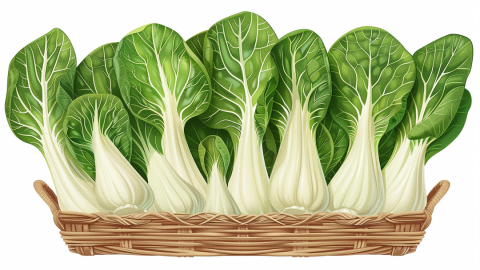Can Donghancai (Winter Cold Vegetable) strengthen the spleen and nourish the stomach?
Generally, winter spinach (Malva verticillata) has a certain auxiliary effect in strengthening the spleen and nourishing the stomach, but it should be consumed in moderation. A detailed explanation is as follows:

Winter spinach is a common vegetable that contains abundant dietary fiber, vitamin C, carotene, and minerals such as calcium and iron. The dietary fiber promotes intestinal peristalsis and aids digestion; moderate consumption can reduce the burden on the gastrointestinal tract and help maintain stable gastrointestinal function, thereby assisting in the improvement of mild indigestion caused by spleen and stomach weakness. However, winter spinach's function in strengthening the spleen and nourishing the stomach is relatively mild and cannot treat spleen and stomach discomfort caused by diseases such as gastritis or gastric ulcers.
Excessive consumption of winter spinach may lead to increased gastrointestinal burden due to excessive intake of dietary fiber, causing discomfort such as bloating and diarrhea, especially in individuals with weaker spleen and stomach function. Additionally, winter spinach has a relatively cooling nature, and excessive consumption may cause some irritation to the spleen and stomach.
In daily life, it is advisable to reasonably combine winter spinach with warming ingredients such as yam and pumpkin, and cultivate regular eating habits to better maintain the health of the spleen and stomach.







